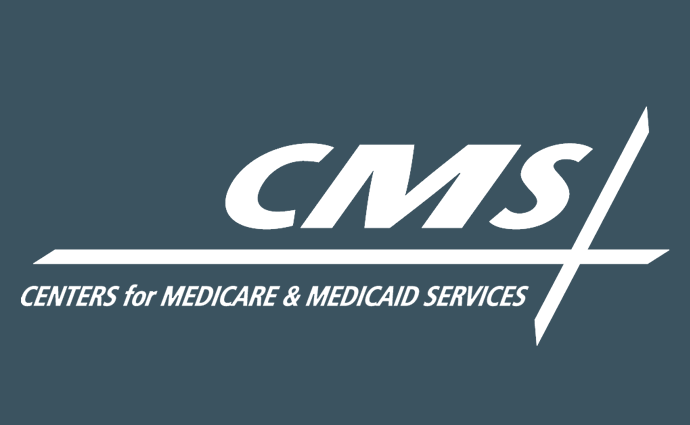CMS Finalizes Alternative Payment Models for Specialty Care
One alternative payment model targets end-stage renal disease, while the other is a bundled payment demonstration for 16 cancer types. Both will be mandatory in certain regions.

Source: Centers for Medicare & Medicaid Services
- CMS is transitioning more specialty care to value-based reimbursement with two new alternative payment models for end-stage renal disease and cancer care.
A final rule released late last week unveiled the finalized End-Stage Renal Disease (ESRD) Treatment Choices (ETC) Model and its partner Kidney Care Choices Model, as well as the mandatory Radiation Oncology (RO) Model.
All three models alter how specialists in Medicare get paid by tying reimbursement to quality metrics and the rate of kidney transplantation in the case of the ETC Model. The model will also use monthly capitation payments to incent ESRD facilities and managing clinicians in certain areas to deliver dialysis in patient homes versus expensive dialysis facilities.
CMS expects the Model to account for approximately 30 percent of all adult ESRD beneficiaries, a decrease from half of ESRD beneficiaries, which was floated in the model’s proposal.
The ETC Model is part of the White House’s push to advance kidney care from last year, which, among other items, directed HHS to create a new payment model in Medicare and increase reimbursement rates for new renal dialysis drugs and biological products as well as the development of innovative equipment and supplies for dialysis treatments.
READ MORE: Stakeholders Pick Apart Bundled Payments for Radiation Oncology
“Over the past year, the Trump Administration has taken more action to advance American kidney health than we’ve seen in decades,” HHS Secretary Alex Azar said in a recent announcement. “This new payment model helps address a broken set of incentives that have prevented far too many Americans from benefiting from enjoying the better lives that could come with more convenient dialysis options or the possibility of a transplant.”
The ETC Model will also change transplant center requirements to give providers more flexibility to support patients requiring an organ transplant and the Health Resources and Services Administration’s final rule on implementing the National Organ Transplant Act of 1984 to remove financial barriers to organ donation, including the scope of reimbursable expenses incurred by living organ donors.
Meanwhile, the RO Model will leverage bundled payments for 16 different types of cancer to see if Medicare providers and suppliers will deliver more radiotherapy versus more visits or deliver radiotherapy services in one setting over another (e.g., hospital outpatient department or freestanding radiation therapy center).
Medicare radiotherapy providers and suppliers in randomly selected geographic areas will be required to participate. CMS projects the Model to cover approximately 30 percent of all eligible Medicare fee-for-service radiotherapy episodes nationally.
The RO Model will begin on January 1, 2021, and is estimated to save Medicare $230 million over five years, according to CMS.
READ MORE: Medicare Reimbursement Changes Coming for Kidney Care, Dialysis
“President Trump knows that, for cancer patients, what matters is their quality of life and beating their cancer. But today, Medicare payment for radiotherapy is based on the number of treatments a patient receives and where they receive it, which can lead to spending more time traveling for treatment with little clinical value,” said CMS Administrator Seema Verma in a separate announcement. “That’s why the Trump administration has developed a new innovative model that allows patients and providers to focus on better outcomes for patients.”
The RO Model is a step in the right direction, according to the American Society for Radiation Oncology (ASTRO), but more reforms are needed.
“Requiring practices to participate and then forcing them to start the model on January 1, 2021, is untenable for practices already enduring staff shortages and other challenges due to the COVID-19 pandemic,” the industry group said in a statement responding to CMS’ final rule.
“The transition to value-based payment will require significant practice changes and investments to comply with the model's requirements. ASTRO strongly urges CMS to significantly delay the start date rather than foster unnecessary chaos and burden for the practices this model is designed to support,” the group continued.
Industry groups also expressed concerns about the ETC Model.
READ MORE: Team-Based Care for Kidney Disease Saves Park Nicollet $1.2M
“While we appreciate the decision to reduce the scope of the model from the proposed 50 percent to 30 percent, we remain concerned over fears voiced by patient organizations and providers about patients who do not select home dialysis being disadvantaged by the Model have not been addressed in a way to allay their anxieties,” said Kidney Care Partners, a coalition of more than 30 organizations, including patient advocates, dialysis professionals, care providers, researchers, and manufacturers.
Research has shown that patients benefit from early education, yet waivers included in the ETC Model “do not include dialysis facilities and their multi-disciplinary care teams, which is something that Members of Congress have specifically sought to do in The Chronic Kidney Disease Improvement in Research & Treatment Act,” the group stated.
